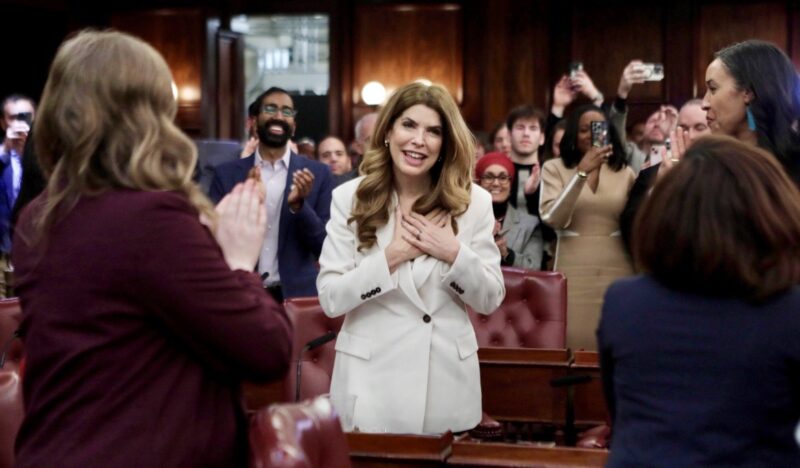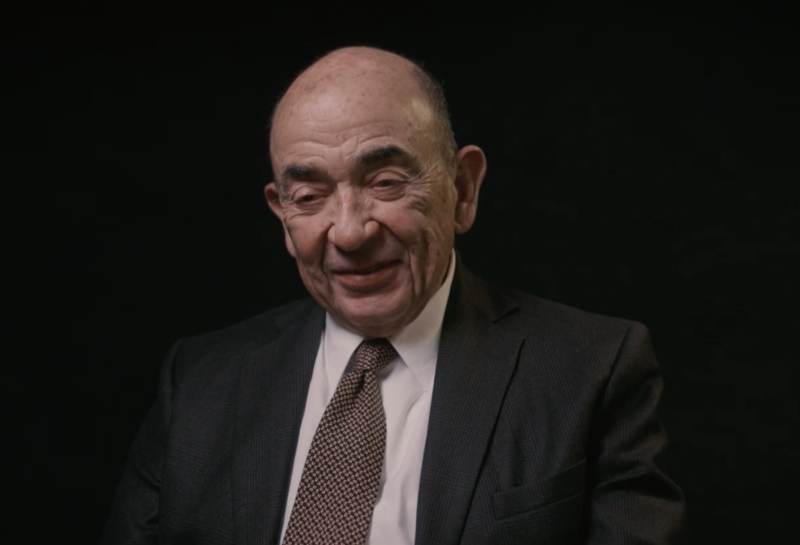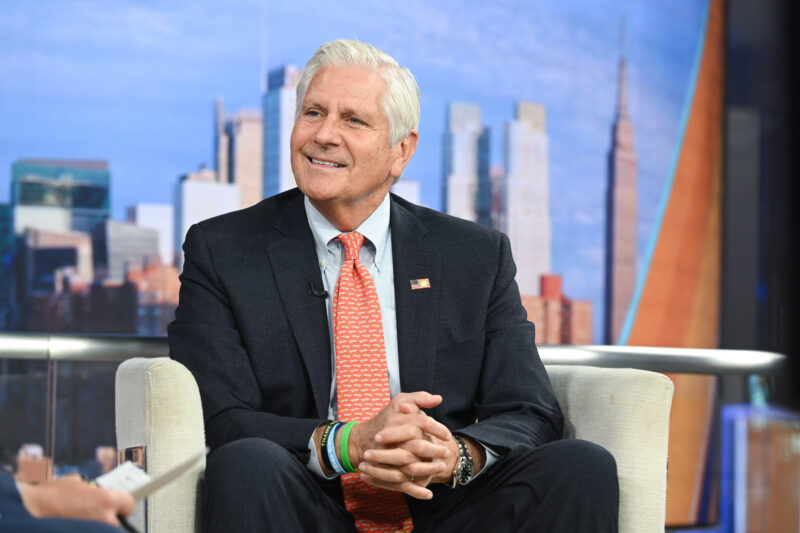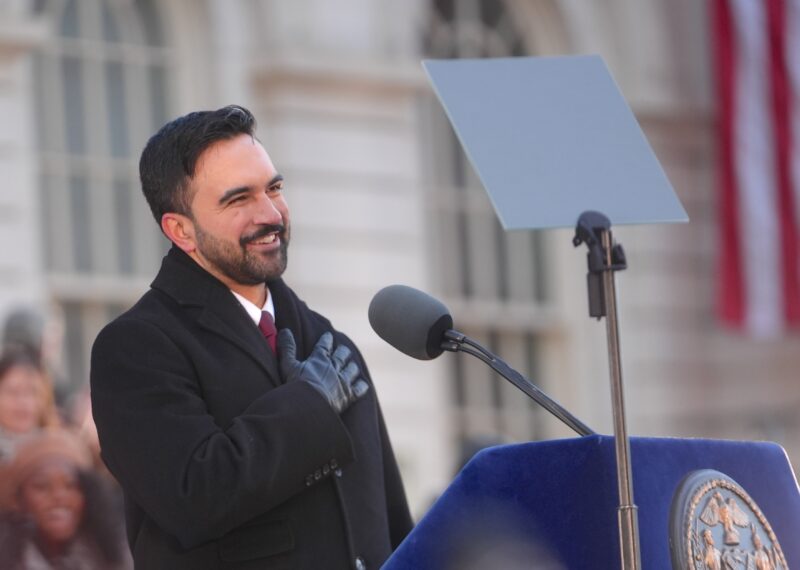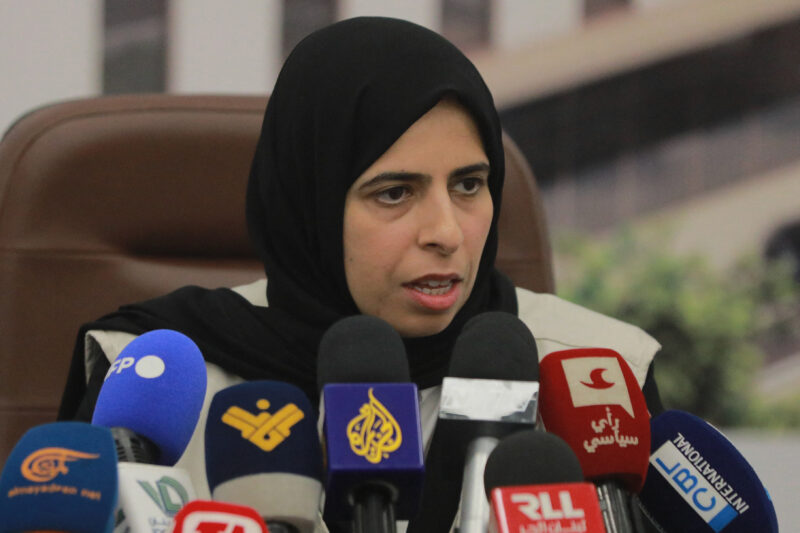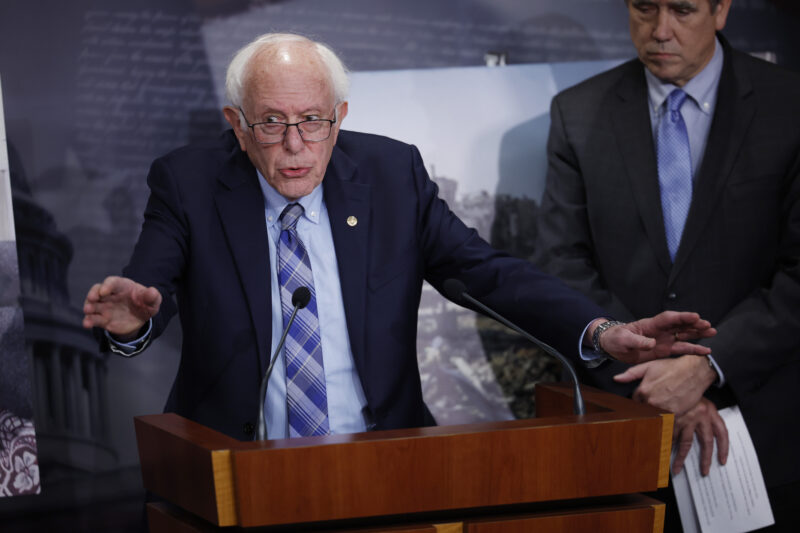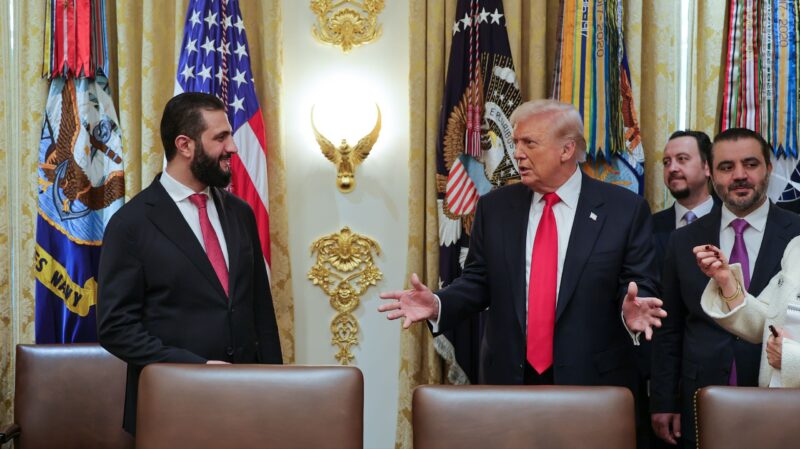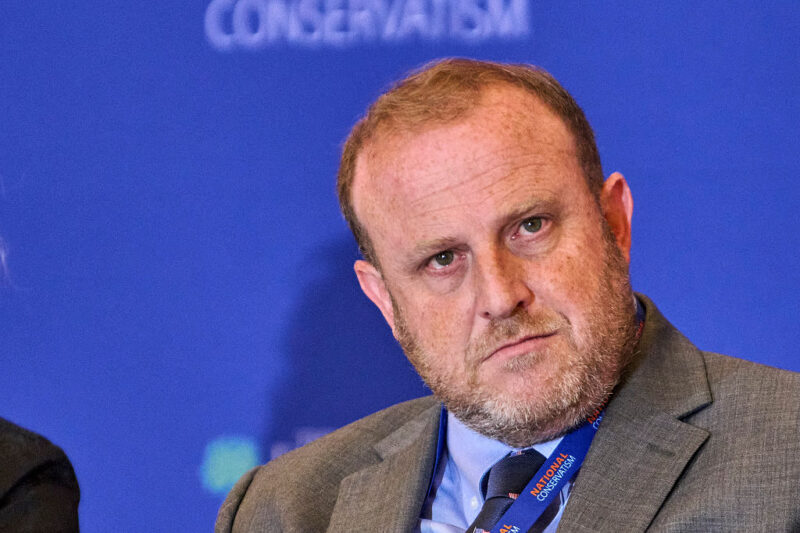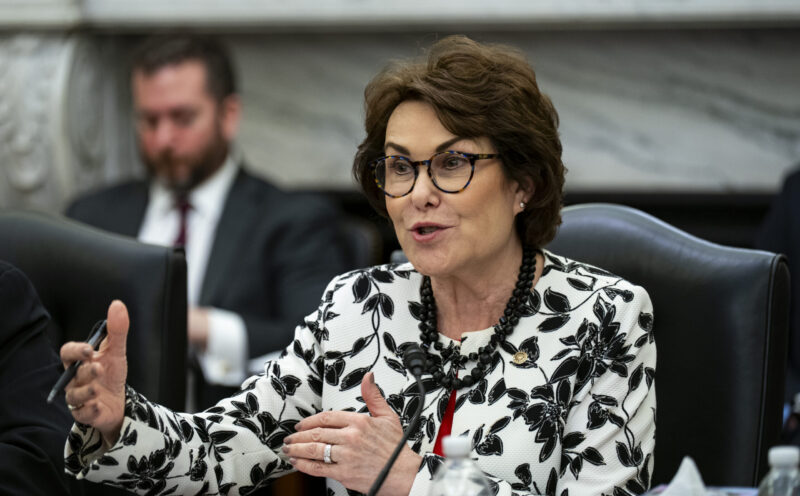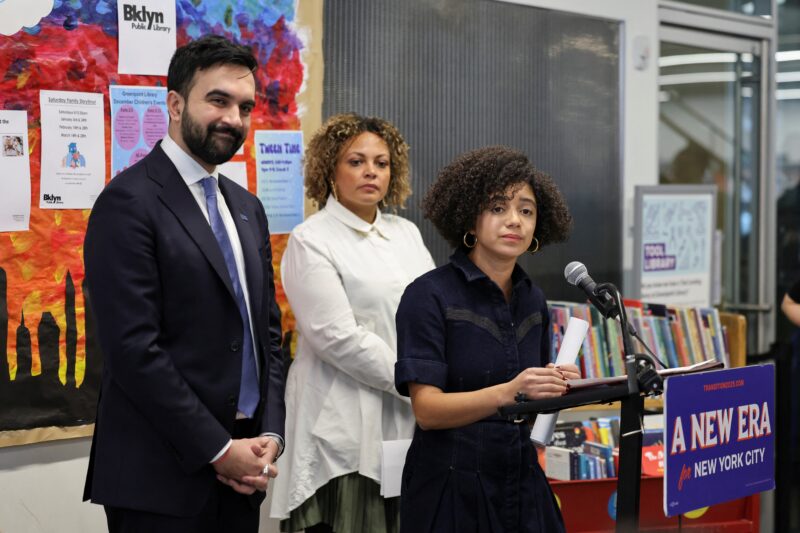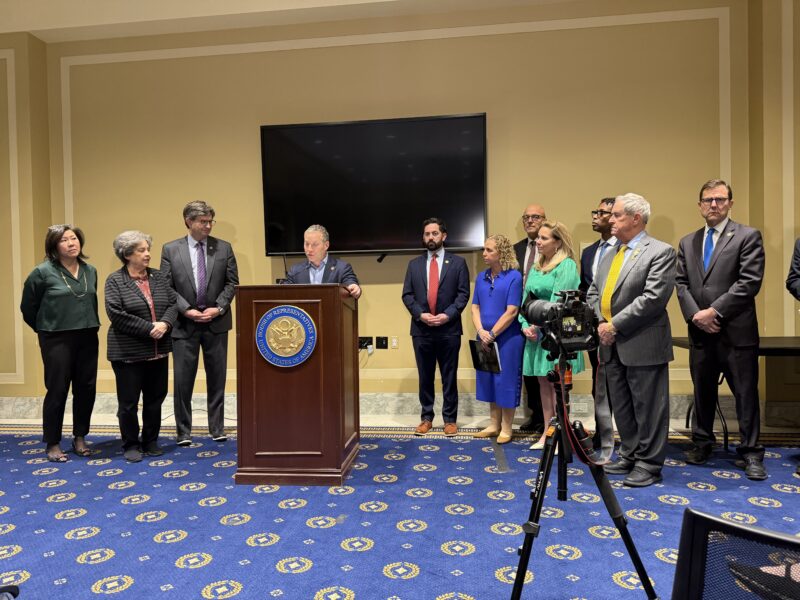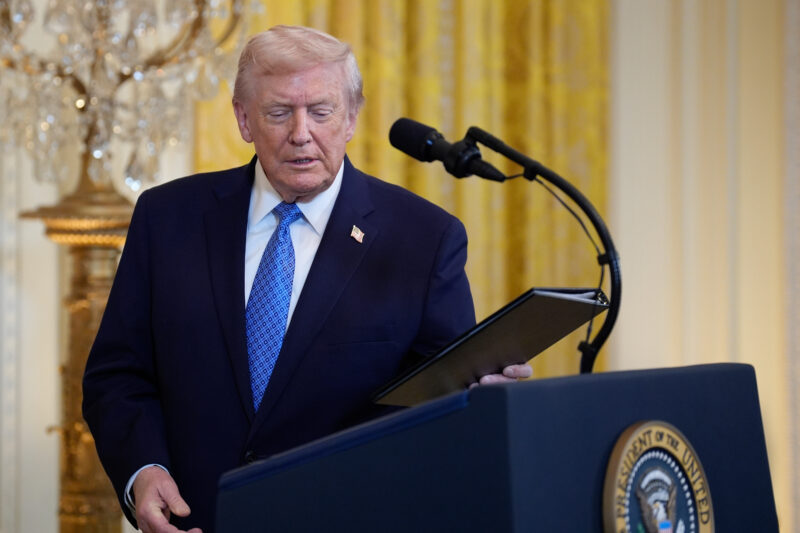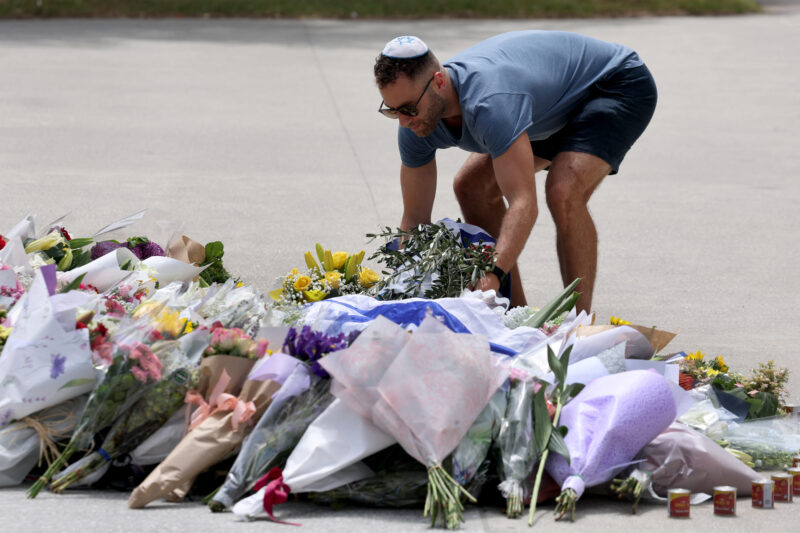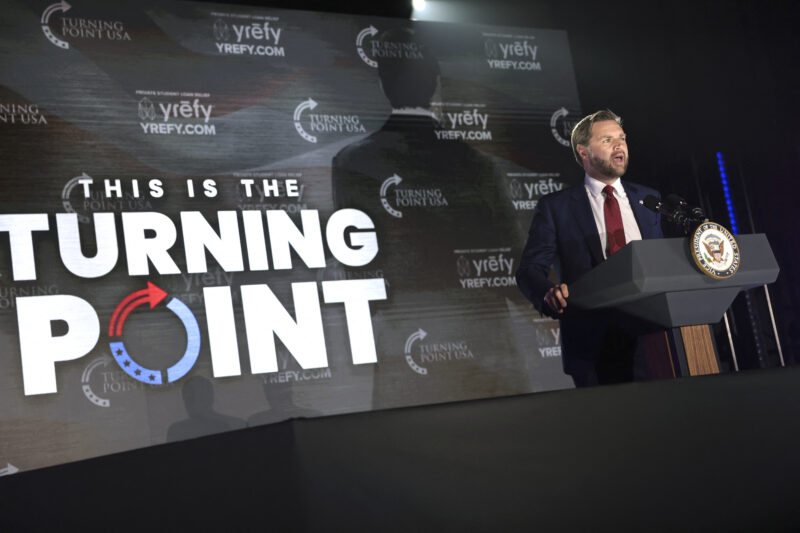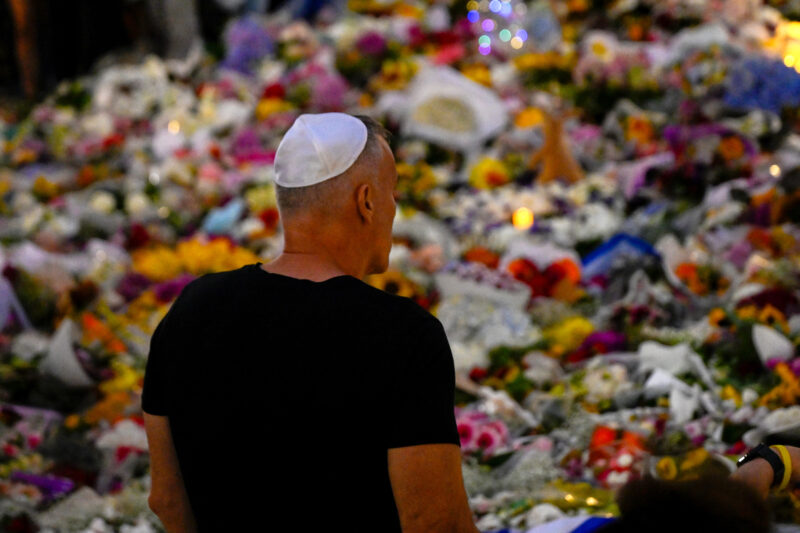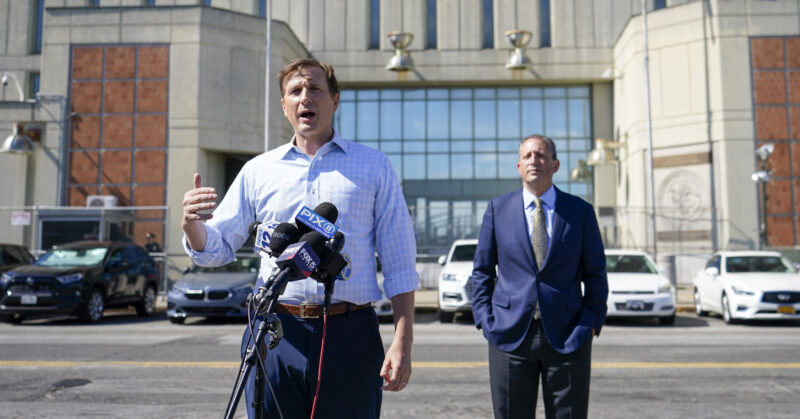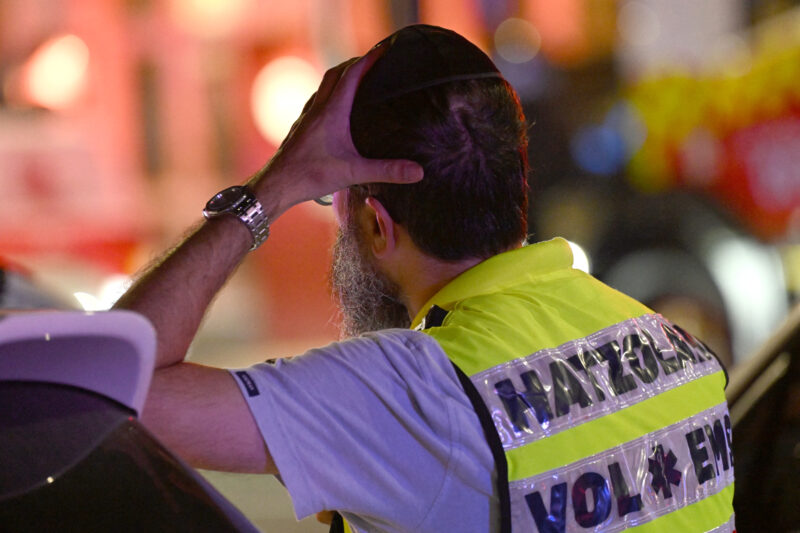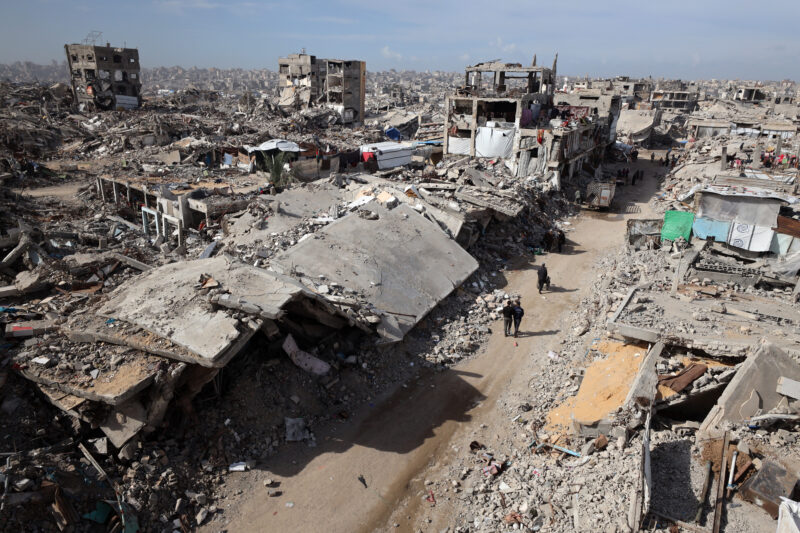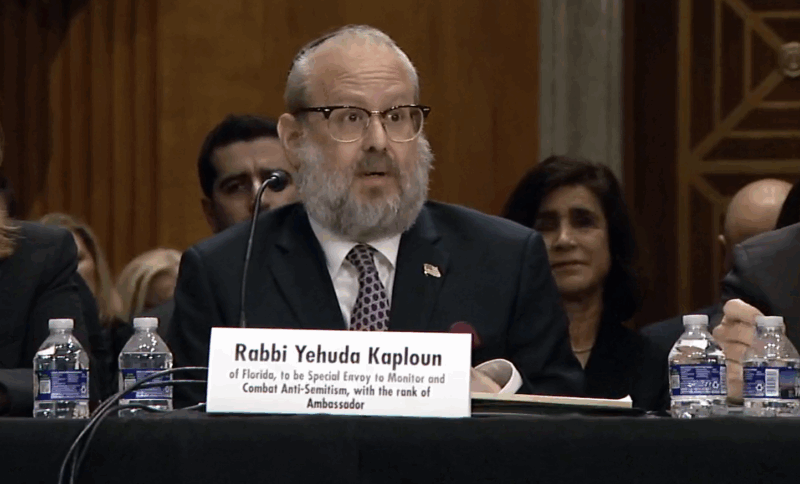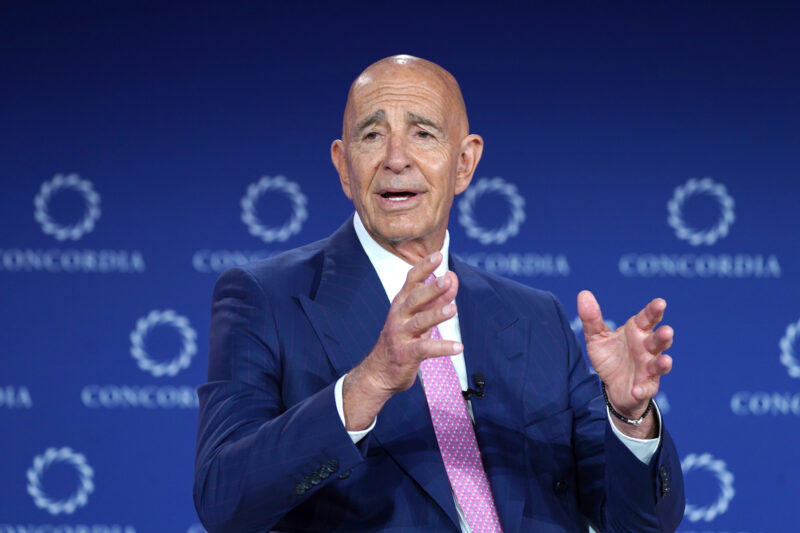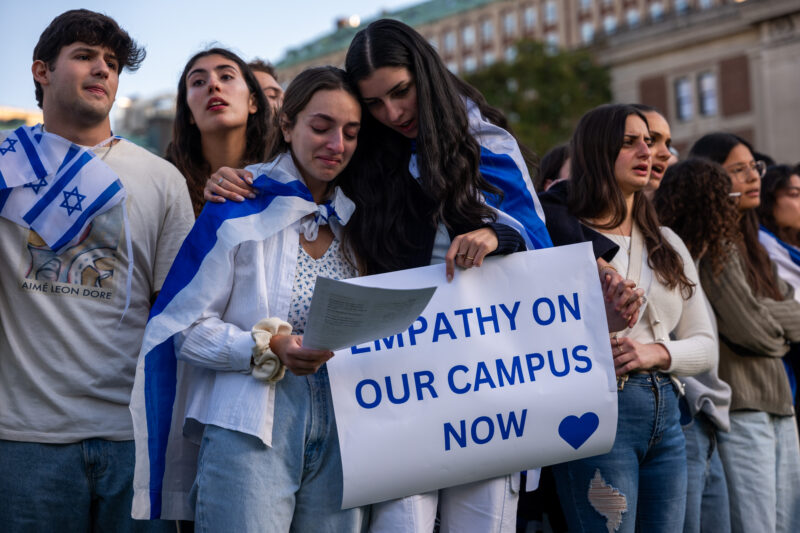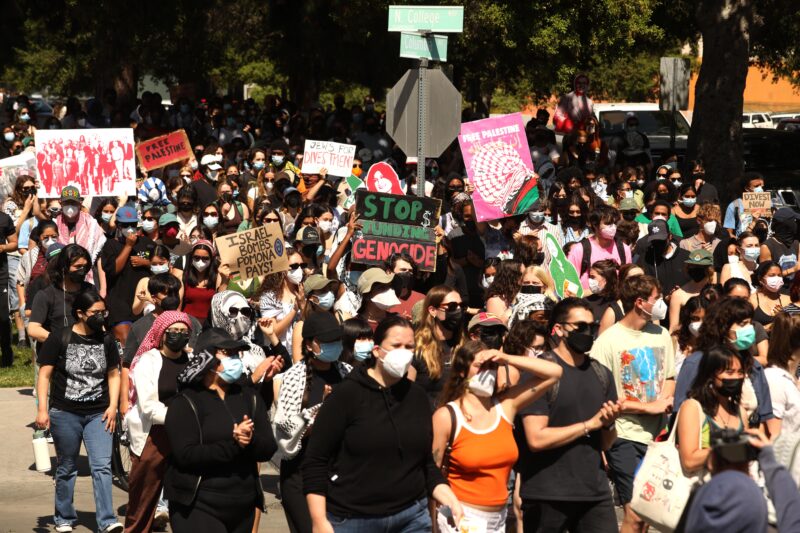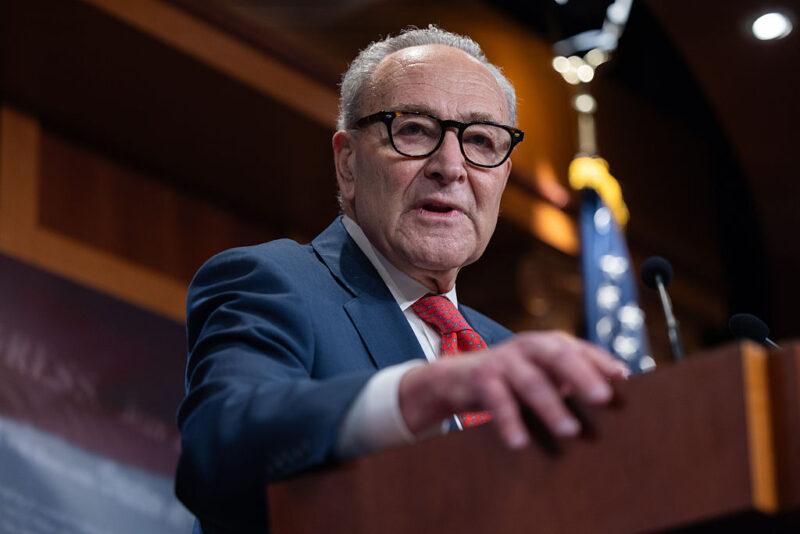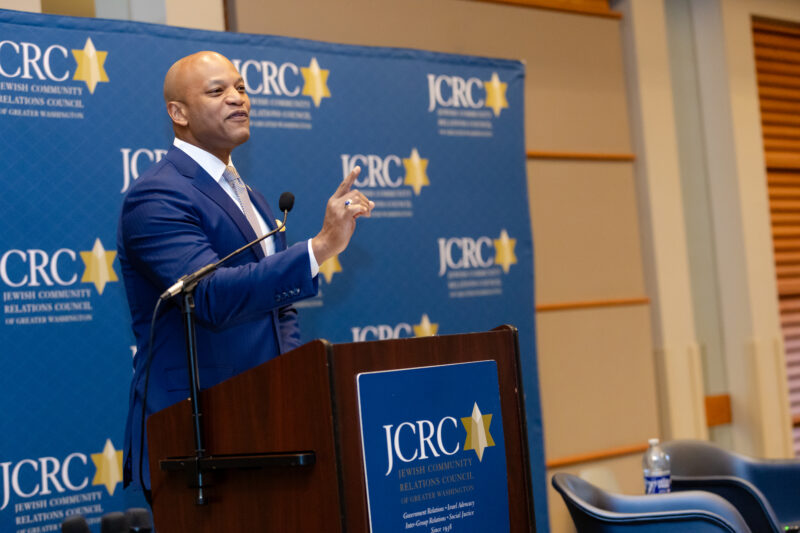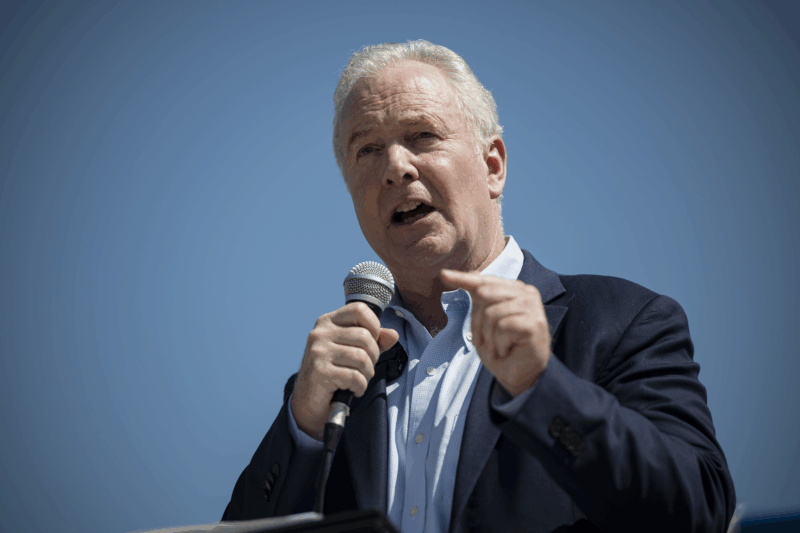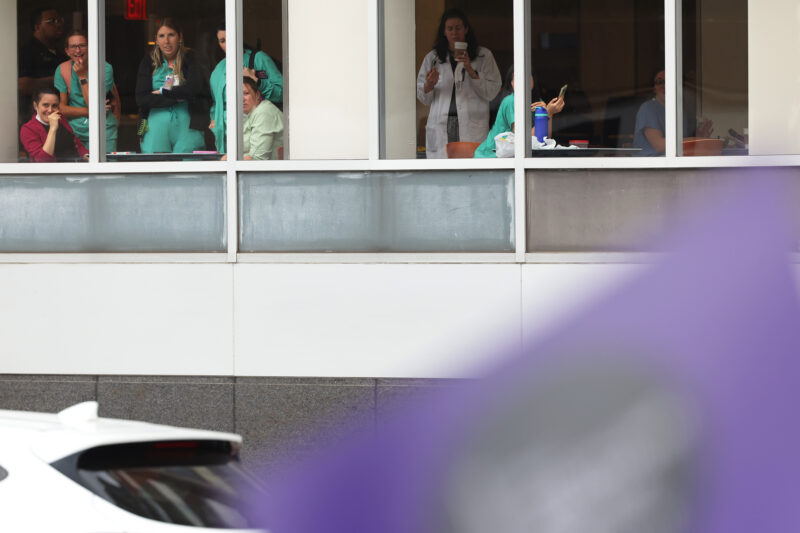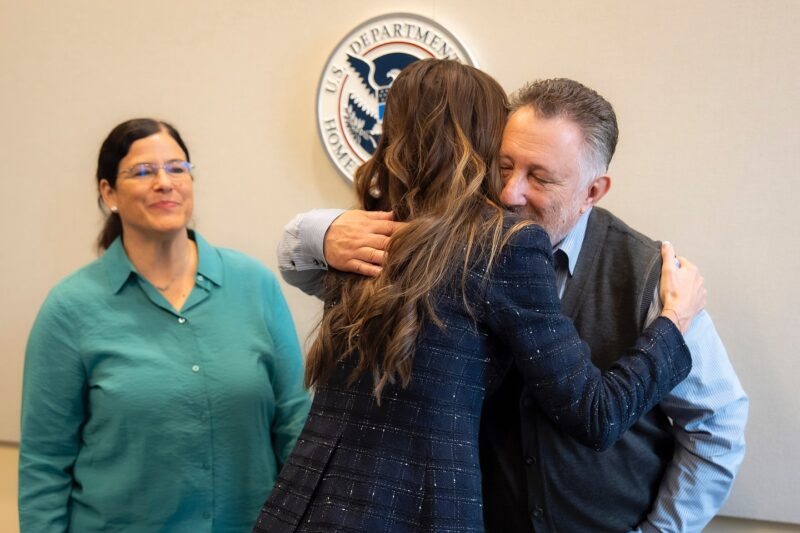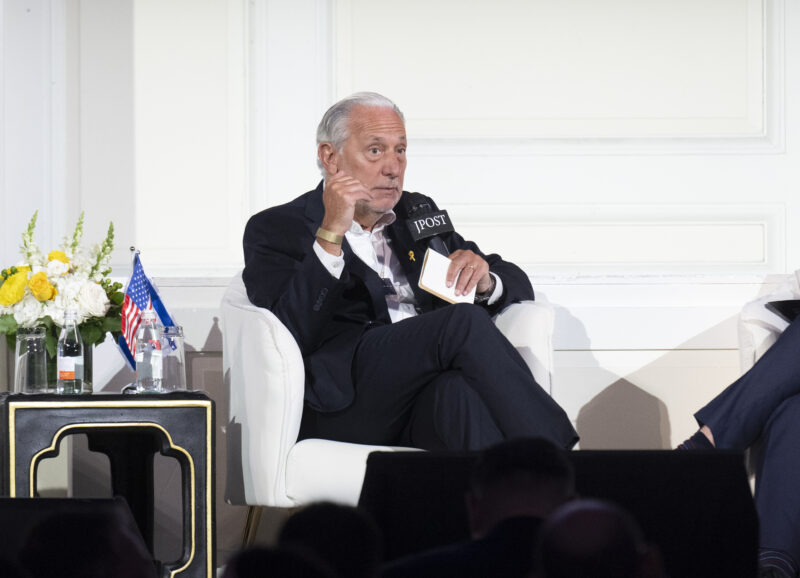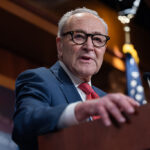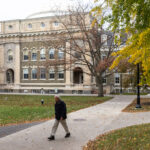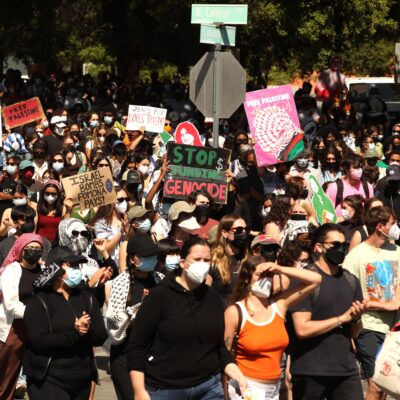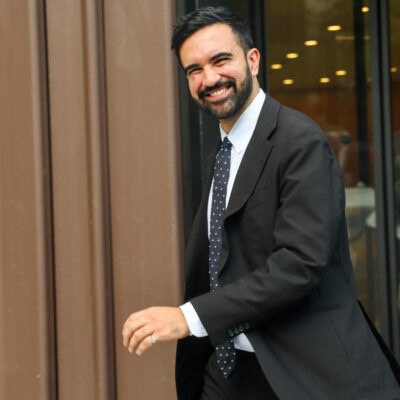Lawmakers, health care providers raise alarm about growing antisemitism in medical field
Rep. Jamie Raskin said he was ‘shocked and astonished’ by the degree of anti-Jewish discrimination among health care providers

Anna Moneymaker/Getty Images
Rep. Dan Goldman (D-NY) returns to a hearing with the House Committee on Homeland Security on Capitol Hill on January 30, 2024 in Washington, DC.
Speaking on a panel on Capitol Hill on Tuesday, lawmakers, medical professionals and Jewish community advocates sounded the alarm about the spread of antisemitism in the health care field, both within medical schools and in clinical settings.
They said that the issue deserves and requires greater attention from Capitol Hill, akin to the attention campus antisemitism has received over the past year.
“That’s truly scary, the idea that somehow your religious background or your identity would inform or impact the type of care that you get is not only antisemitic, it’s not only anti-American, it is anti-democratic,” Rep. Dan Goldman (D-NY), the incoming chair of the House antisemitism task force, said at the Jewish Federations of North America-organized briefing.
JFNA has been bringing groups of medical professionals to the Hill to raise awareness about the crisis in the health care field.
Goldman emphasized that the issue deserves greater attention, as do problems in a range of other areas of public life.
“We’ve certainly heard a lot over the last year-plus about antisemitism on college campuses especially, but it is rising in all sorts of different areas that are now just more and more coming to life,” Goldman said, noting also a recent study showing Jews faced discrimination in hiring and incidents of discrimination in the publishing field.
The New York congressman said that as co-chair of the antisemitism task force he hopes to highlight the role of antisemitism as a threat to democracy and its links to anti-democratic forces.
“If anyone, if a particular group — and we’ve obviously seen this a lot in our history — is going to suffer from discrimination, then we don’t have true democracy,” Goldman said. “And that is really what’s at stake here. It’s the fabric of our society that is not just impacted by antisemitism, but is impacted by hate as well.”
Making reference to the Charlottesville Unite the Right rally in 2017, where demonstrators chanted “Jews will not replace us,” Goldman argued that “antisemitism cannot be separated and isolated as only related to Jews. It relates to all of us, it relates to every group that has suffered from persecution, from discrimination.”
He also called for depoliticizing antisemitism and Israel policy, arguing that using the issues as political wedges hurts the Jewish community.
Rep. Buddy Carter (R-GA), a pharmacist, said that the discussion on antisemitism in the health care field was particularly stunning to him, adding, “I don’t know that you could get anything worse than that.” He said he would be pursuing the issue further in his role on the Energy and Commerce Committee.
He urged the health care professionals to continue educating lawmakers about the issues that have been occurring.
Rep. Jamie Raskin (D-MD), who listened to testimony from some of the health care professionals, said that he was “utterly shocked and astonished” at the stories they recounted. “It’s just a profoundly troubling, disturbing thing.”
Raskin said that he’s interested in exploring the issue further, including potential violations of federal civil rights law.
“I commend you all for blowing the whistle on this and insisting that it stop, because the next step is people begin to say that the Jews are in a different biological category … this leads us down a very dangerous road,” he said. “I do believe that antisemitism is the pathway to destruction of liberal democracy, and so it’s not just a concern of the Jewish community, it should concern everybody.”
One panelist, a therapist who asked not to be identified by name out of concern about professional consequences, explained that some in the mental health space are pushing a theory known as “decolonizing therapy” in which Jews are treated as oppressors in therapeutic settings and Zionism is treated as a mental illness that patients should be told to reject.
“It’s a complete inversion of the way therapy should work,” the therapist said. “It’s an indoctrination process.”
The therapist also highlighted efforts to blacklist therapists who identified as or were willing to serve patients who identified as Zionists and said that professional organizations in the psychology space have been part of perpetuating these harmful ideologies, rather than combating them.
“My fear is that it will not get better,” they said. “This ideology is becoming so widespread. Well-intentioned people believe it because they don’t know any better… I don’t think that this will go away unless we do something to stop it.”
Raskin appeared especially taken aback by the discussion of the “decolonizing therapy” theory, describing the mentality as a “massive projection.”
“I really did not think that this infected the medical profession and scientists and people who take, or at least purport to take, an objective and rationalist approach to knowledge and the helping professions and so on,” Raskin said. “So that’s a startling set of reports from out in the field.”
Another panelist, a doctor and medical school faculty member who also asked to remain anonymous, said that some Jewish patients at their hospital’s fertility clinic were reluctant to file complaints about the hostility they faced from medical providers, out of fear that the staff would damage their embryos. And they said that another provider had cut off contact with a patient after the patient told the provider that she had visited Israel.
The doctor added that providers have refused to remove Palestinian political paraphernalia even when it’s making patients uncomfortable in highly sensitive settings, such as the labor and delivery and palliative care units.
They said administrators had refused to enforce the hospital’s rules out of fear of upsetting anti-Israel staff and dismissed complaints of discrimination, in some cases referring impacted staff to a counselor who herself had posted antisemitic content and leaked their complaints.
The doctor said that Jewish and pro-Israel events at the hospital’s affiliated university have been canceled or faced other significant disruptions, and that highly accomplished pro-Israel faculty have left the institution.
They added that deeply problematic anti-Israel and antisemitic content has long been embedded in the medical curricula and medical schools, and that administrators are denying the issue or hoping it will blow over.
Jewish physicians, the doctor said, have also faced harassment, doxxing and antisemitic comments and conspiracy theories at their hospital and university. And some physicians have described Zionists as dangerous to their patients and responsible for racial inequities in health care.
Kenneth Marcus, the president of the Louis D. Brandeis Center for Human Rights Under Law, told the audience — primarily congressional staff — that he expects the issue of antisemitism in health care to grow significantly in attention and prominence over the coming months, noting a huge influx of cases to the Brandeis Center.
“We have seen in the campus setting a whole-of-Congress approach and even a whole-of-government approach,” Marcus said. “I think that health care calls for that as well … It is an issue that seems to me every bit as ripe for consideration by the coming Congress and the incoming administration as what we’re seeing in the colleges and the K-12 institutions.”
Marcus said that some of the same tools used against campus antisemitism, including Title VI of the Civil Rights Act, are applicable to the health care space, noting that medical schools and providers receive significant federal funding. And he also noted that many health care facilities are tax-exempt, another potential line for lawmakers to pursue.
But he said that the Department of Health and Human Services has not paid the same level of attention to the issue as the Department of Education has, it has not issued specific regulatory guidance on antisemitic discrimination and it has not adopted the International Holocaust Remembrance Alliance’s working definition of antisemitism.





